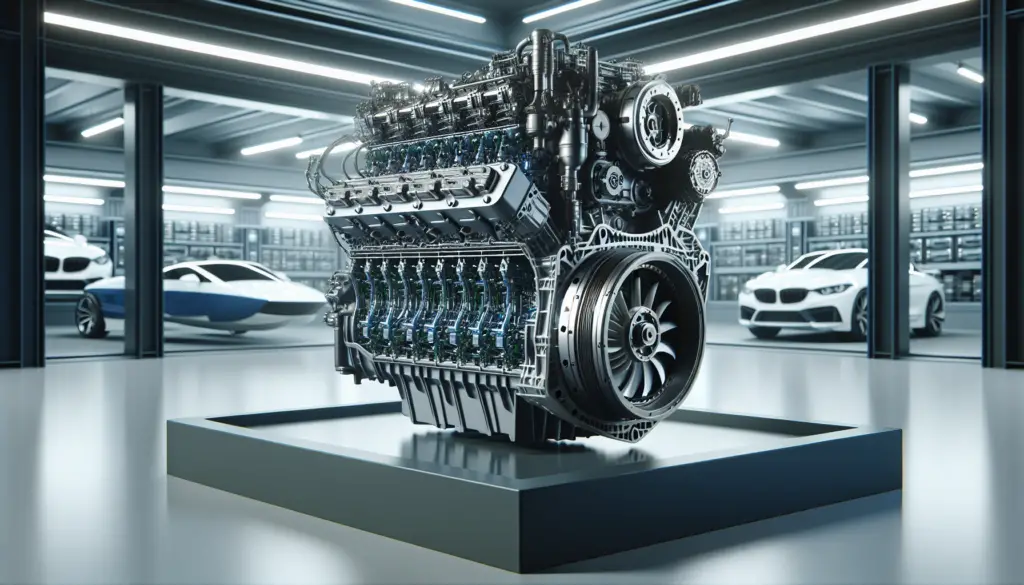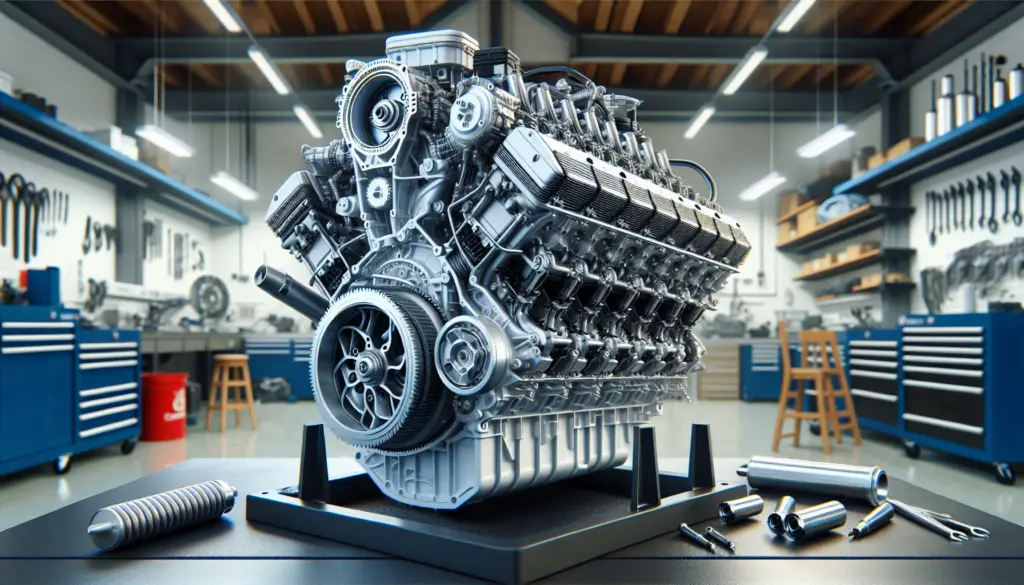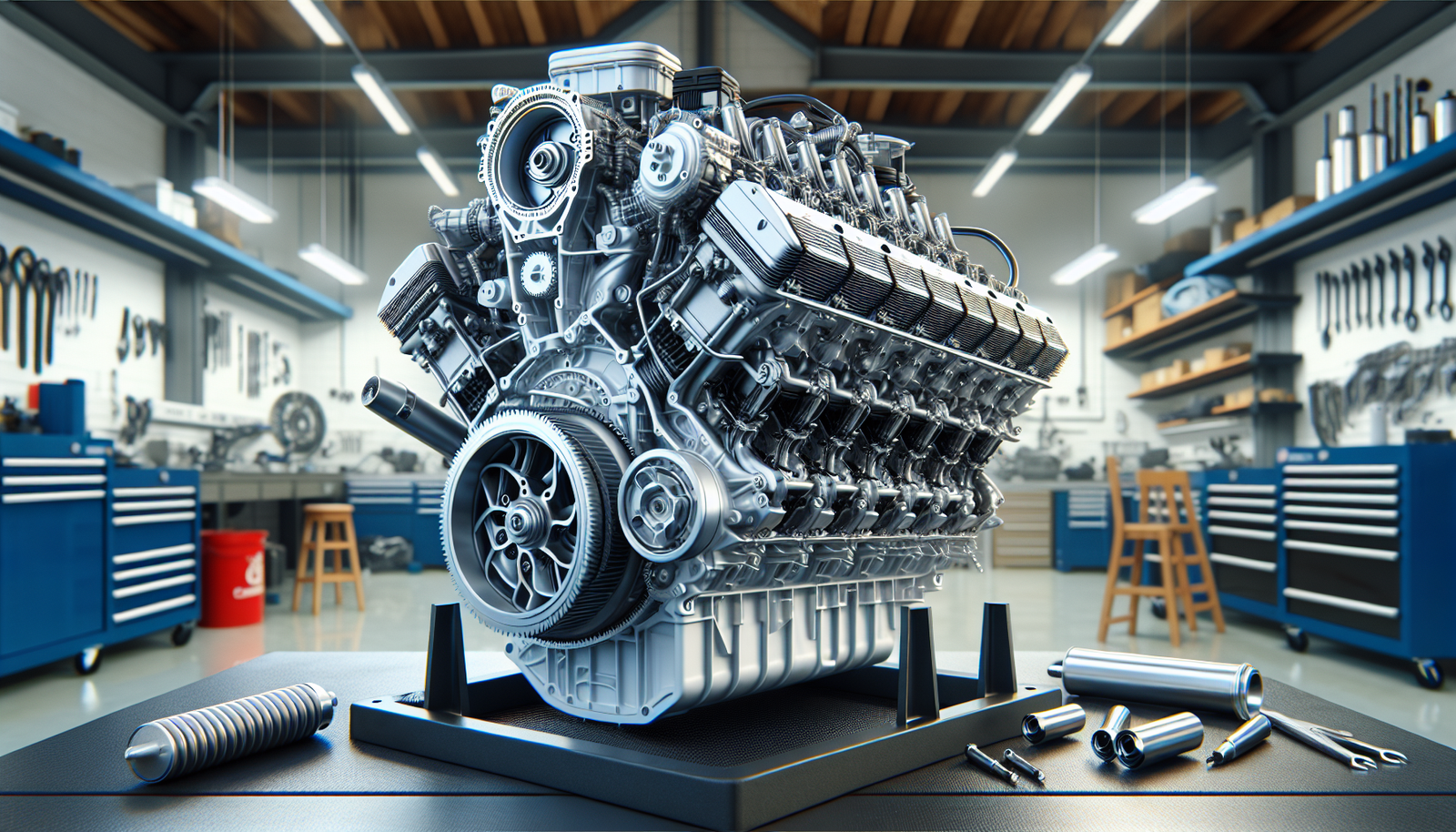You’re a proud boat owner with a thirst for speed and a hunger for performance. “The Best Ways To Upgrade Your Boat Engine For Increased Speed And Performance” is indeed the cruise control guide you need. This article is all about helping you explore the most efficient ways to upgrade your boat engine, helping you blast through the waves at blistering speeds without sacrificing stability and control. Come on, let’s set sail and discover the sea-like never before.

Understanding Your Boat’s Current Performance
The primary step in enhancing your boat’s speed and performance is to comprehend what you’re starting from by understanding your boat’s current performance. Analyzing your boat’s current standing will give you insights into the areas you need to improve and strides you need to take.
Assessing your boat’s current speed
When it comes to measuring your vessel’s current speed, it’s a pretty straightforward process. You can use a GPS speedometer to gauge your boat’s speed accurately. Make several runs over a designated course and record the average speed. You can also note the time it takes to achieve maximum speed, which is indicative of your boat’s acceleration.
Determining the capabilities of the existing engine
The capabilities of your existing engine play a significant role in its performance. Hence, you should take the time to understand all about it. This would involve knowing the engine’s horsepower, torque, rev range, and fuel efficiency. Understanding these key characteristics will help you make informed decisions when considering which types of upgrades will yield the results you are looking for.
Identifying areas for potential improvement
Once you have a firm grasp on your boat’s current speed and the capabilities of your existing engine, it becomes easier to identify areas that need improvement. These may include fuel efficiency, engine power, or even specific parts that may have worn out or are not running efficiently.
Upgrading to a More Powerful Engine
Upgrading your boat’s engine can be a fruitful option if you want to considerably enhance its performance, but it requires a substantial investment.
The benefits of a more powerful engine
A more powerful engine will inevitably provide higher speed and better acceleration. This means you’ll enjoy smoother and faster rides across the water. Besides enhancing speed, a modern, powerful engine can also bring benefits such as improved fuel efficiency, lower emissions, and greater reliability.
Understanding the costs associated with an engine upgrade
While a more powerful engine offers several benefits, there are costs involved that you need to understand. Apart from the upfront cost of the new engine, installation charges may apply, wear and tear will occur more quickly on your boat’s other components, leading to increased maintenance costs.
Choosing the right engine for your boat
When selecting a new engine for your boat, it’s crucial to match the engine’s power to your boat’s size and design. Theoretically, a larger engine means more power, but if it’s too big for your boat, it may merely add unneeded weight, negatively affecting performance and fuel efficiency.
Improving Your Boat’s Propeller
Your boat’s propeller is another critical component that dramatically impacts speed and overall sailing performance.
The role of the propeller in boat speed
Your boat’s propeller is essentially responsible for converting the engine power into forward motion. Therefore, upgrading your propeller can lead to noticeable improvements in speed and acceleration.
When to opt for a propeller upgrade
If you feel your boat isn’t hitting the top speed that your engine’s horsepower should deliver, or if your engine seems constantly overworked, a propeller upgrade might be the way to go.
Choosing the right propeller
Choosing the right propeller involves considering factors like the prop’s diameter, pitch, material, and number of blades. The best propeller will depend on your particular boat and its intended use.

Turbocharging Your Boat Engine
Turbocharging can serve as a potent way to substantially enhance your boat’s performance.
The benefits of turbocharging
By forcing more air into the combustion chamber, a turbocharger allows your engine to burn more fuel and produce more power. Hence leading to better acceleration and higher top speed. Turbochargers are also compact, which means minimal impact on the weight distribution of your boat.
Potential drawbacks of turbocharging
While turbocharging your boat engine can provide significant power boosts, there are cons. The turbocharger produces lots of heat which may lead to a hot engine and lead to additional wear and tear. Turbochargers also tend to increase the complexity of the engine setup, demanding extra maintenance.
Finding a reputable turbocharger installer
While many boat owners may be tempted to perform the turbocharger installation themselves, it’s highly recommended to have it installed by a professional. This ensures the proper setup, tuning, and integration with the existing engine systems.
Correct Weight Distribution
Weight distribution forms a key part of optimizing your boat’s performance.
How weight distribution affects boat performance
Basically, the distribution of weight on your boat affects its stability and speed. An improperly balanced boat may sit too low in the water, increasing drag and thus reducing speed. On the other hand, a boat that’s too light in the bow can lead to issues with steering and control.
Achieving optimal weight distribution
Balancing the weight on your boat involves spreading out the load evenly. This includes crew members, gear, and any other payload. Consider aspects such as the location of your fuel tank and battery.
Tools to aid in weight distribution
Tools such as scales and trim tabs can aid in achieving optimal weight distribution. Trim tabs provide vital lift at the stern, reducing drag and improving speed.
Optimizing the Hull Design
Optimizing the design of your boat’s hull can go a long way towards improving its performance.
How the hull design impacts performance
A streamlined, efficient hull design can dramatically lessen drag through the water and enhance speed significantly. Moreover, the hull shape also impacts stability, making it an integral factor in your boat’s performance.
Redesigning the hull for better speed
While a full redesign might be impractical for most boat owners, smaller changes can be effective. Installing vertical strakes can reduce water friction, while a properly placed set of trim tabs can adjust your boat’s attitude for the better.
Incorporating hydrofoils into your boat design
Hydrofoils, which lift the hull out of the water, can substantially lessen the water resistance and thus help achieve better speed.
Maintaining Your Boat Engine
Proper care and maintenance of your boat engine is vital for ensuring long-lasting performance.
Routine maintenance for optimal performance
Like any mechanical device, your boat engine needs regular maintenance to ensure it’s operating at peak efficiency. This includes regular oil changes, changing the spark plugs, and keeping the cooling system clean and free-flowing.
Important engine checks before sailing
Before taking a trip, you should always perform a few important engine checks, such as oil level, coolant level, and ensuring your fuel system is free of any leaks.
Handling engine repairs
When it comes to engine repairs, some jobs can be performed by the owner, such as replacing a broken belt. But for more substantial issues, hiring a professional is undoubtedly the safest course of action.
Efficient Fuel Consumption
Optimizing your boat’s fuel consumption is an essential aspect of increasing its performance.
The impact of fuel consumption on speed
How efficiently your boat uses fuel has a direct effect on speed. The less fuel your boat needs to use to maintain a given speed, the more efficient, and therefore faster, it will be.
Reducing fuel consumption for increased performance
Reducing fuel consumption is all about efficiency. This involves optimizing the engine tuning for fuel efficiency, using the correct propeller, and maintaining a clean and streamlined hull.
Best fuels for marine applications
The type of fuel you use impacts engine performance and lifespan. Marine gasolines are specially formulated for use in boat engines and can deliver improved performance over standard automotive gasoline.
Use of Engine Chip Tuning
Chip tuning is another technique used to enhance boat performance.
Benefits of chip tuning
Chip tuning can lead to substantial performance improvements by tweaking the engine’s electronic control unit (ECU) parameters for maximum efficiency and power.
Selecting the right chip for your boat
Choosing the right chip depends on your engine’s make and model. It’s important to consult with a professional tuner or dealership to ensure the chip is compatible and safe for your specific engine.
How chip tuning affects overall performance
By altering the ECU parameters, chip tuning can yield significant improvements in horsepower and torque, thus enhancing speed and acceleration.
Installation of Aftermarket Performance Parts
Installing aftermarket performance parts can provide an effective means of upgrading your boat’s performance.
Understanding aftermarket parts
Aftermarket parts are components made by companies other than the original equipment manufacturer (OEM), designed to replace or enhance the performance of the original parts.
Choosing the best aftermarket parts
It’s critical to choose high-quality aftermarket parts from reputable manufacturers. You should select parts that are best suited to your specific needs.
Installation process of performance parts
The process of installing performance parts greatly depends on the individual component. While some parts might be straightforward to install, others may require professional installation. Always follow the manufacturer’s instructions and consider seeking professional advice when in doubt.

